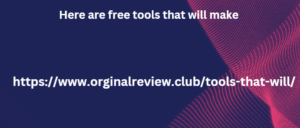The world has shrunk significantly in the age of globalization. Connecting with loved ones or conducting business across borders is easier than ever. However, navigating the world of international phone codes can be daunting, especially when faced with an unfamiliar number. This guide will equip you with the knowledge to become a phone code finder extraordinaire, allowing you to make international calls with confidence.
Unveiling the Mystery: Phone Code Breakdown
Phone codes come in two key varieties: country codes and area codes.
-
Country Code: This unique prefix assigned to each nation by the International Telecommunication Union (ITU) acts as the gateway for international calls to reach the correct country. Think of it as the international address for a nation. Common examples include +1 for the United States and Canada, +44 for the United Kingdom, and +86 for China.
-
Area Code: This additional prefix identifies a specific region within a country. For instance, within the US country code (+1), the 212 area code signifies New York City. However, it’s important to note that not all countries utilize area codes.
Here’s an example to illustrate: Imagine you Here are free tools that will make need to call a mobile number in Tokyo, Japan. You would dial the international calling prefix (explained below) followed by the country code for Japan (+81), and then the local phone number. Area codes are not typically used in Japan for mobile numbers.
Making the Call: International Dialing Prefixes
Before dialing the country code, you’ll need to initiate the international call using the International Call Prefix (ICP) specific to your phone carrier The Ultimate Guide to Setting Up or country. Common ICPs include:
- 011: Used in North America (US and Canada) for landline calls.
- +: The universal ICP, preferred for mobile phones as it works internationally.
Example: To call the Tokyo number from the previous example using a mobile phone from the US, you would dial: + (international calling prefix) 81 (Japan country code) XXXXXXX (local phone number).
Tip: Always double-check the ICP and country code before dialing to avoid unexpected charges.
Mastering the Phone Code Finder: Resources at Your Fingertips
With a multitude of countries and regions, memorizing all codes can be overwhelming. Luckily, numerous resources are available to assist you in your phone code finder quest:
- Web Resources: Websites like Wikipedia maintain comprehensive lists of country codes with corresponding countries [List of country calling codes – Wikipedia].
- Mobile Apps: Several mobile apps specialize in phone code lookups, often offering additional features like international call cost estimation.
- Carrier Websites: Your phone carrier’s website might have a dedicated section for international dialing information, including relevant codes and rates.
Beyond Phone Code Finders: Additional Considerations
- Mobile Network Roaming: When traveling internationally, your mobile phone might connect to a local network through roaming agreements. This can result in additional charges. Check with your carrier for their international roaming rates before making calls.
- Alternative Calling Methods: For cost-effective international calling, consider internet-based calling apps like Skype or WhatsApp, which often offer free or significantly cheaper calls compared to traditional phone lines.
Conclusion
By understanding phone codes and utilizing phone code finder resources, you can transform into a confident international calling champion. So, the next time you need to reach someone overseas, don’t hesitate to pick up your phone and make the connection! With this newfound knowledge, conquering international calls will be a breeze.
